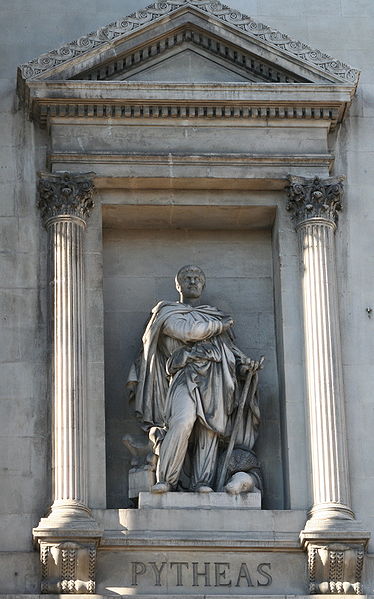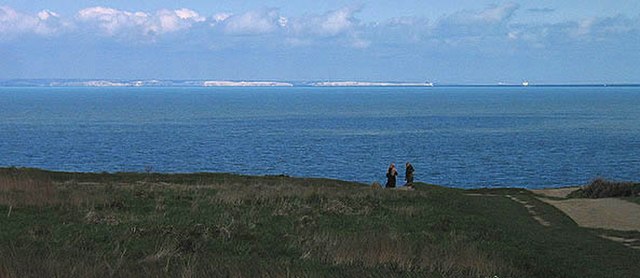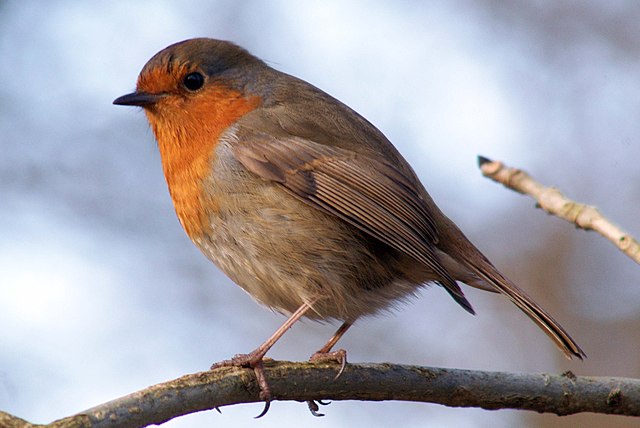Albion is an alternative name for Great Britain. The oldest attestation of the toponym comes from the Greek language. It is sometimes used poetically and generally to refer to the island, but is less common than "Britain" today. The name for Scotland in most of the Celtic languages is related to Albion: Alba in Scottish Gaelic, Albain in Irish, Nalbin in Manx and Alban in Welsh and Cornish. These names were later Latinised as Albania and Anglicised as Albany, which were once alternative names for Scotland.
The White Cliffs of Dover may have given rise to the name Albion.
Albina and other daughters of Diodicias (front). Two giants of Albion are in the background, encountered by a ship carrying Brutus and his men. Brut Chronicle, British Library Royal 19 C IX, 1450–1475
Great Britain is an island in the North Atlantic Ocean off the north-west coast of continental Europe, consisting of the countries England, Scotland and Wales. With an area of 209,331 km2 (80,823 sq mi), it is the largest of the British Isles, the largest European island and the ninth-largest island in the world. It is dominated by a maritime climate with narrow temperature differences between seasons. The island of Ireland, with an area 40 per cent that of Great Britain, is to the west—these islands, along with over 1,000 smaller surrounding islands and named substantial rocks, form the British Isles archipelago.
Satellite image, 2012, with Ireland to the west and France to the south-east
Greek geographer, Pytheas of Massalia
View of Britain's coast from Cap Gris-Nez in northern France
The robin is popularly known as "Britain's favourite bird".






